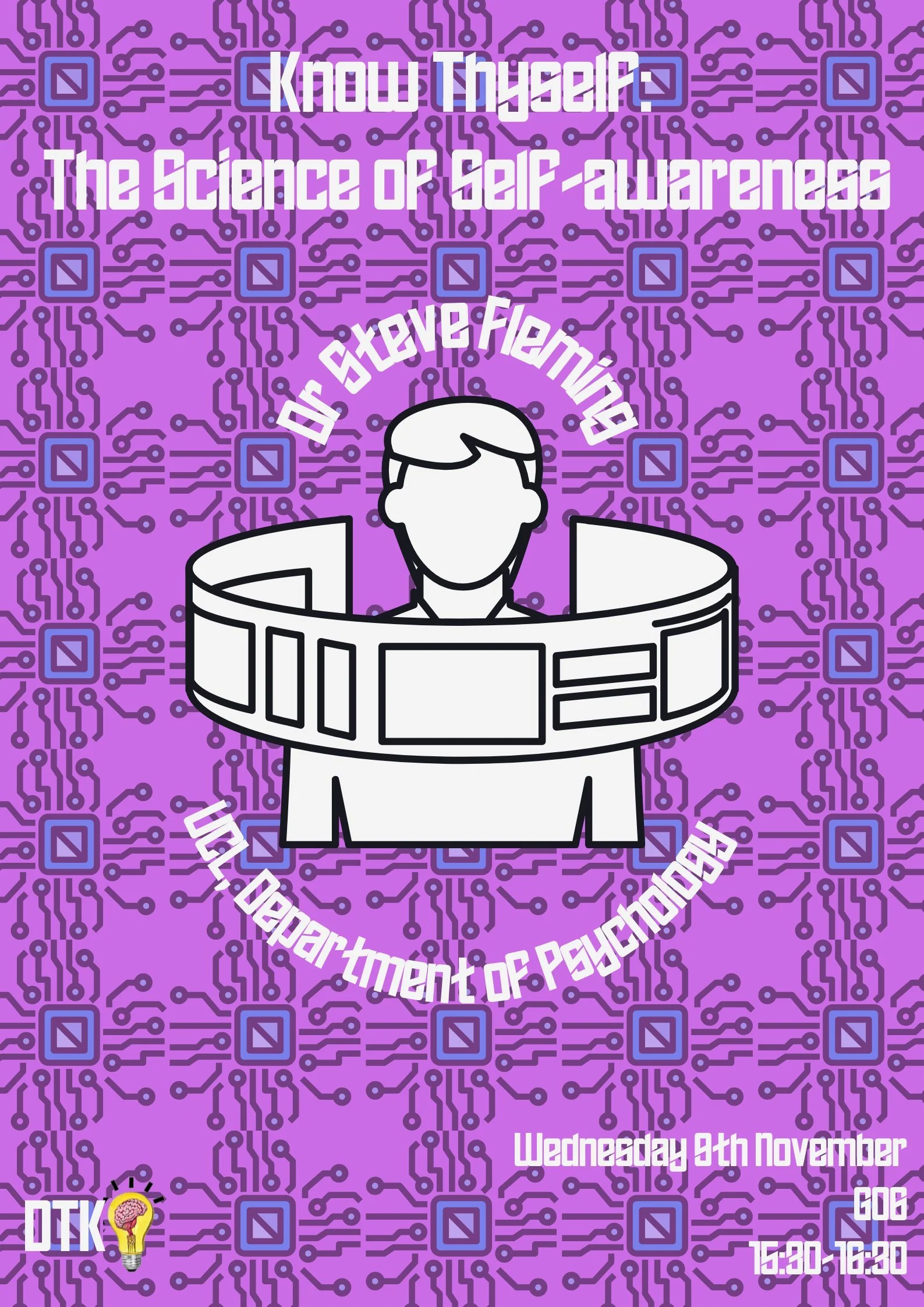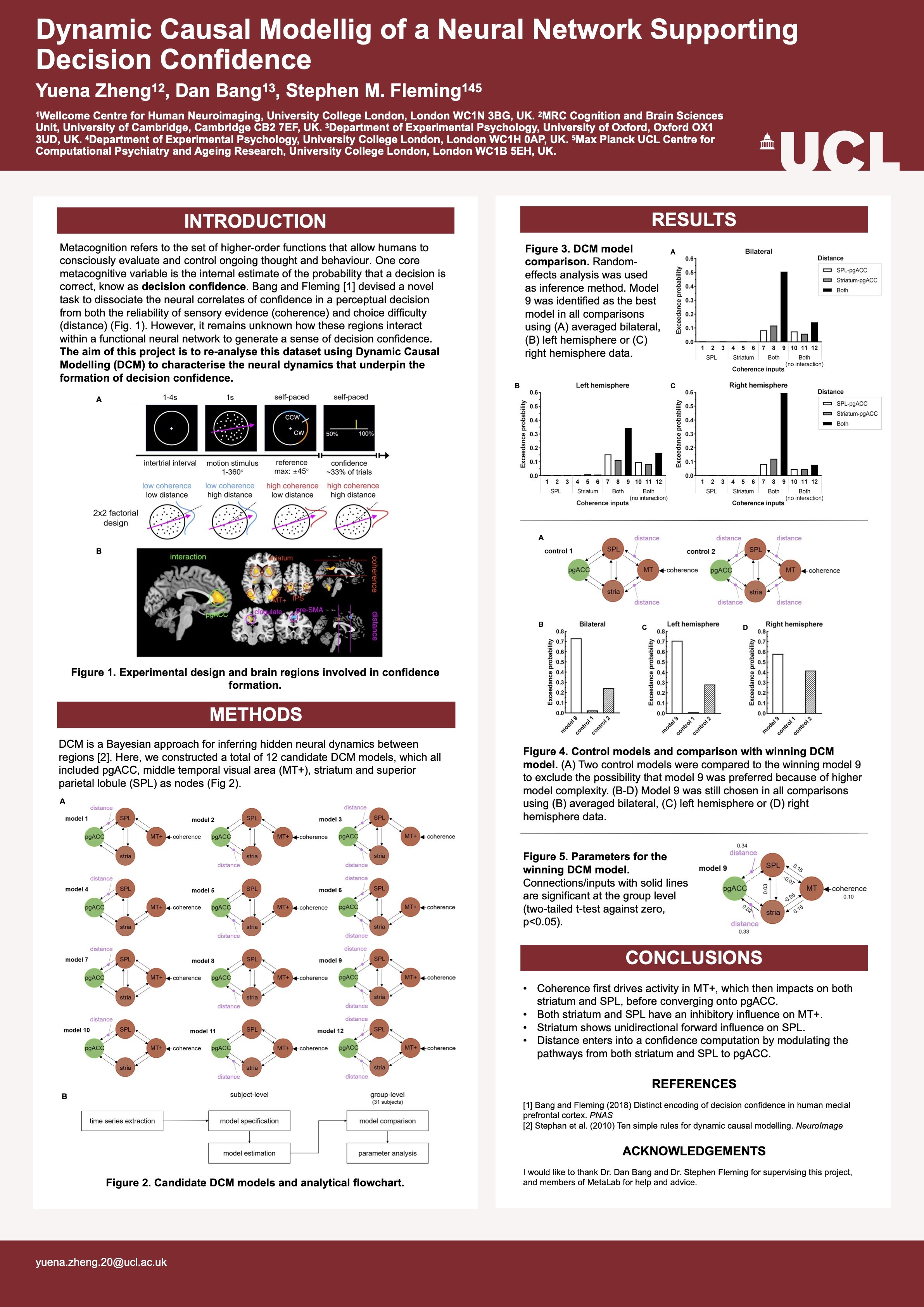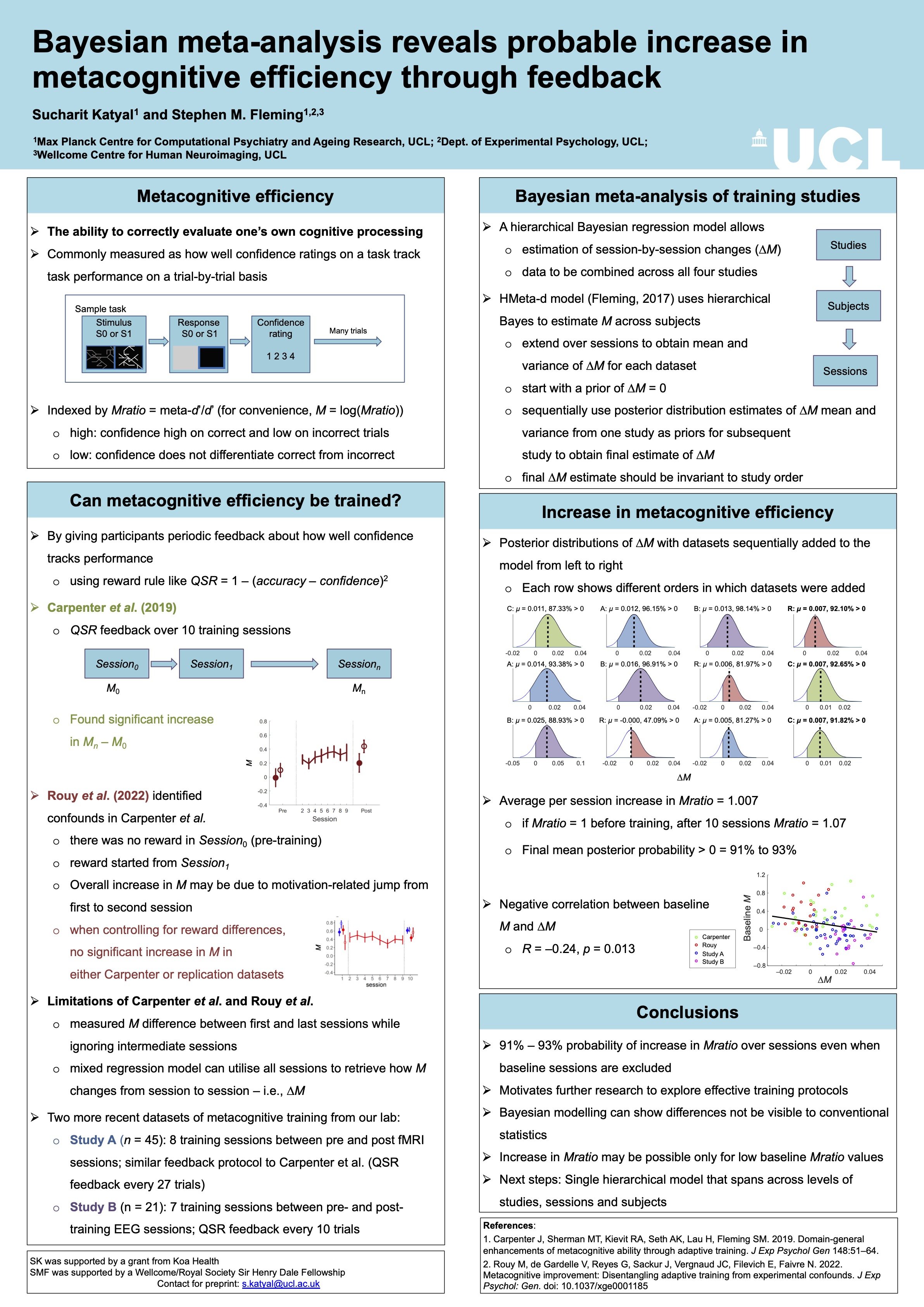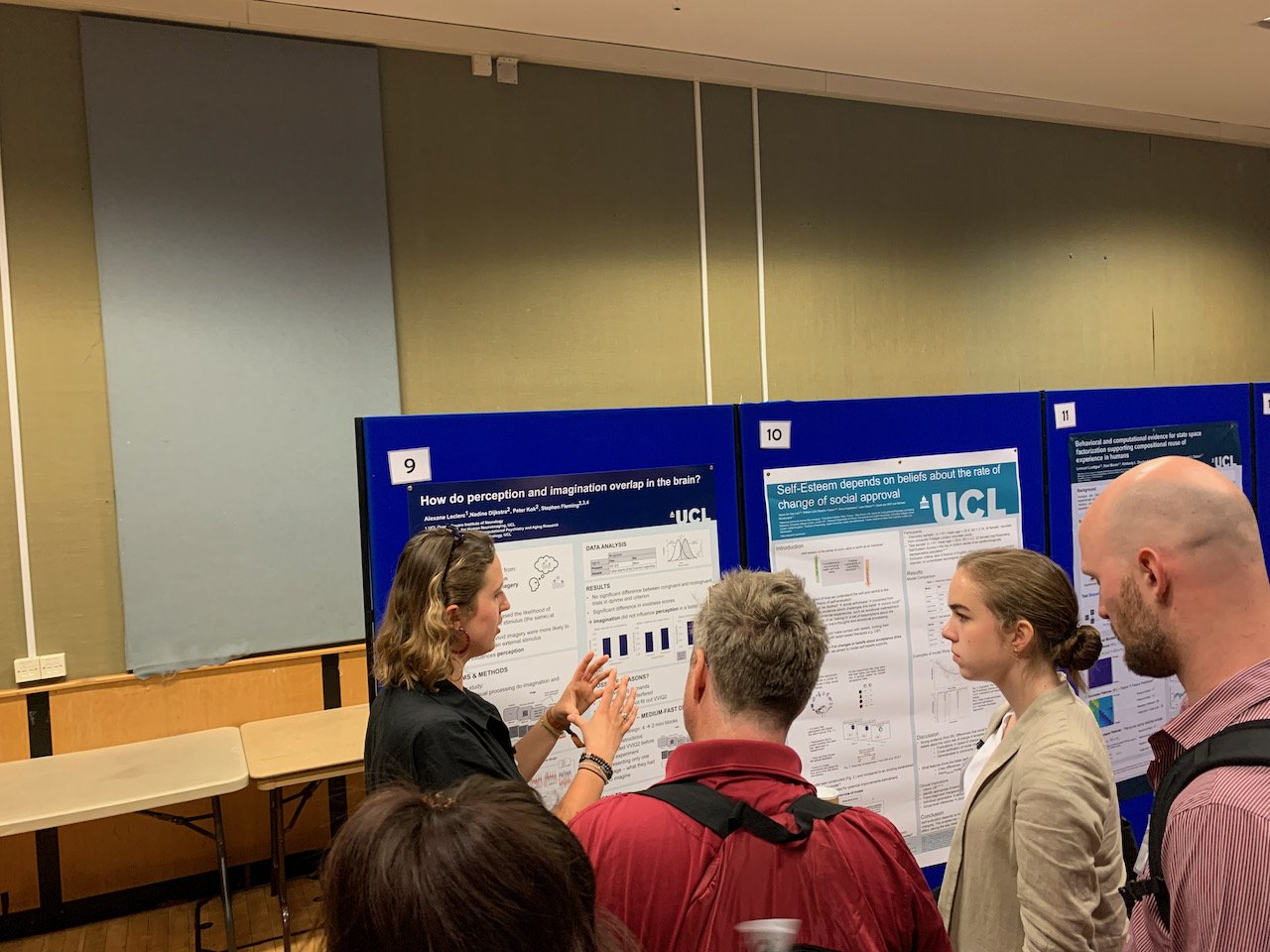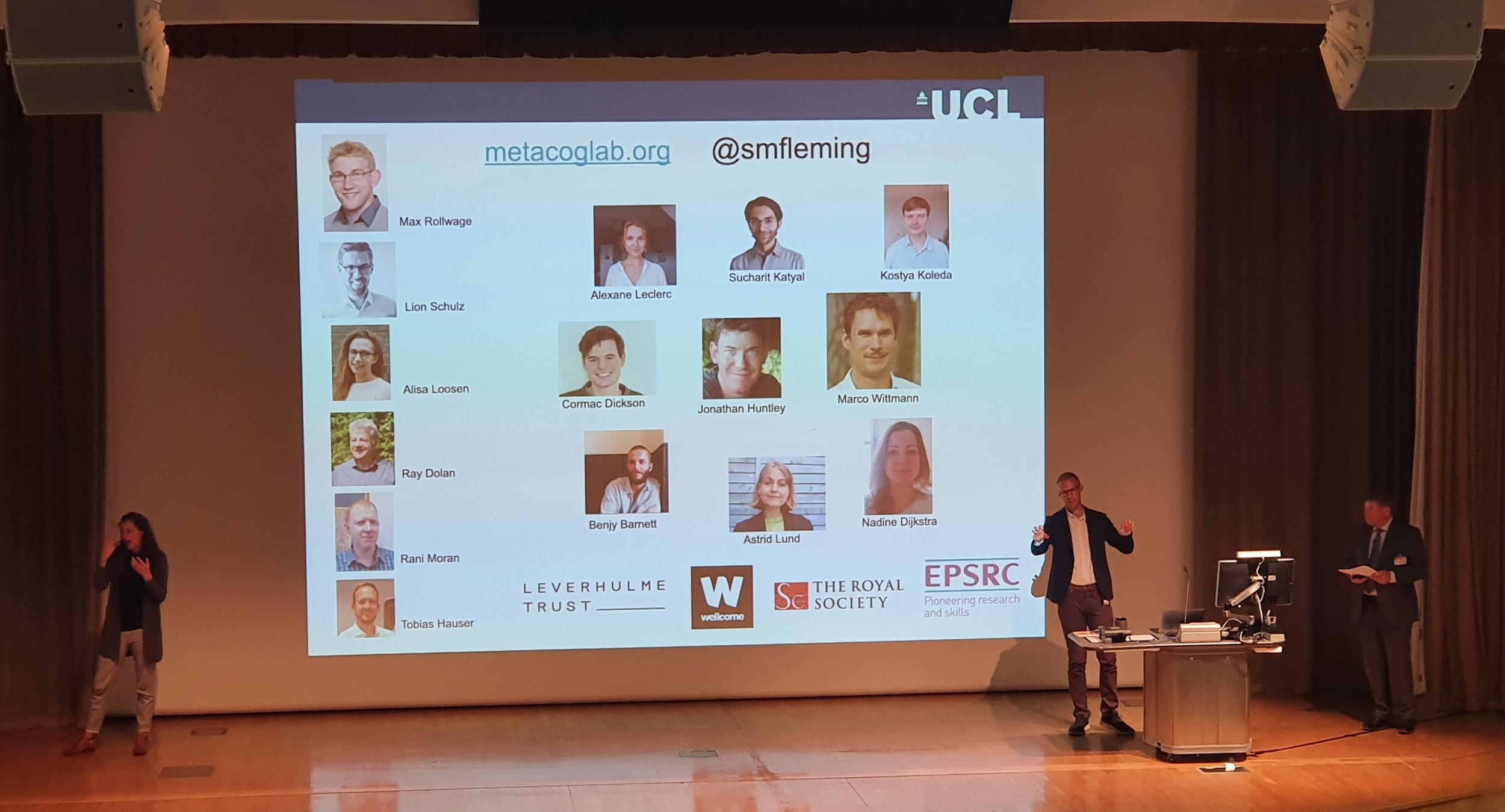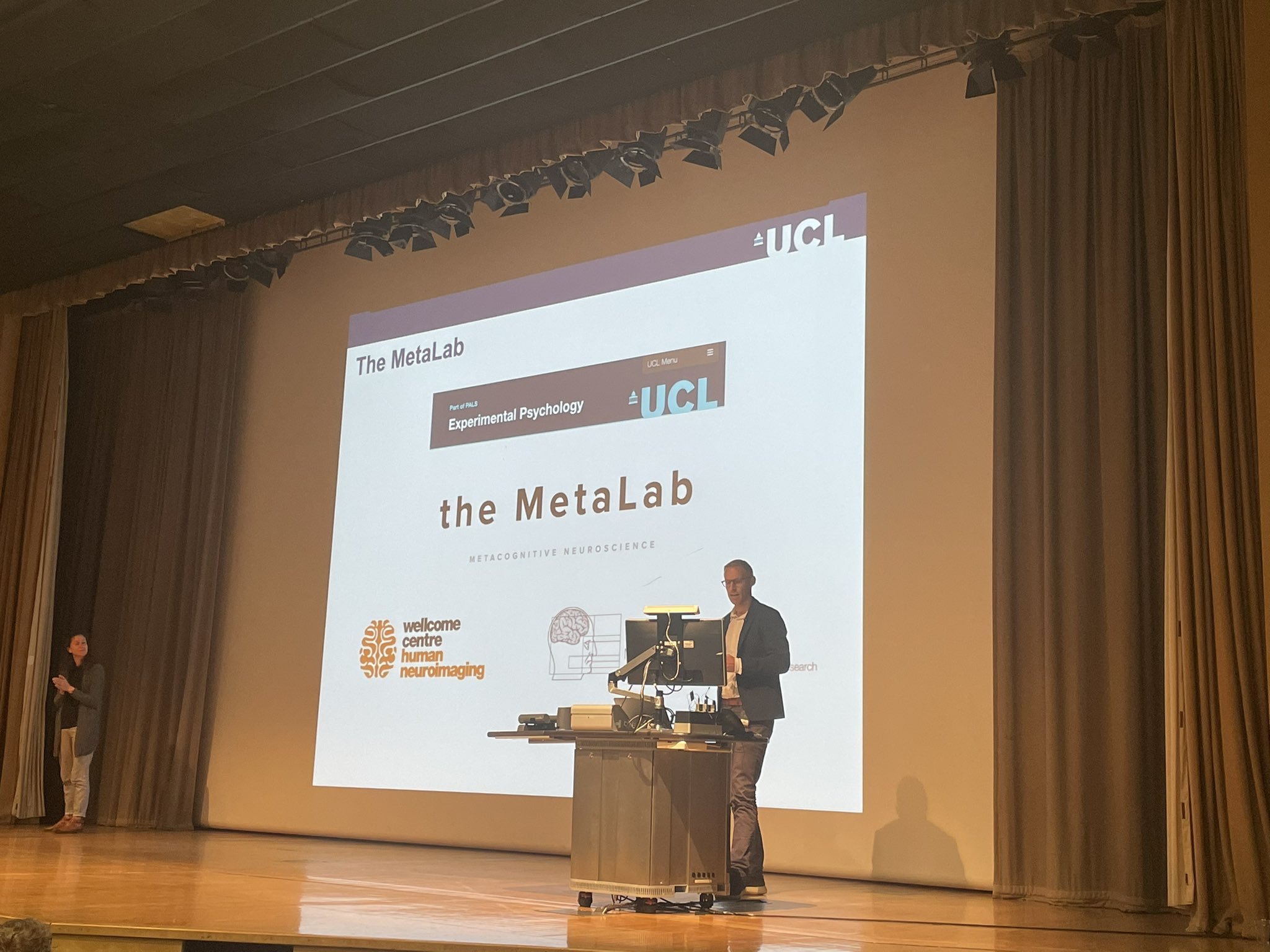New paper published in Nature Communications
Congratulations to Nadine on her paper “Subjective signal strength distinguishes reality from imagination” which is now published in Nature Communications.
The study used computer models, online experiments and brain imaging to investigate how people judge whether something is real or imaginary. We found that people were surprisingly bad at knowing whether what they saw was real, or just part of their imagination. These results suggest that, counterintuitively, there is no categorical difference between imagination and reality; instead, it is a difference in degree, not in kind.
For more details check out Nadine’s Twitter thread on the results.


